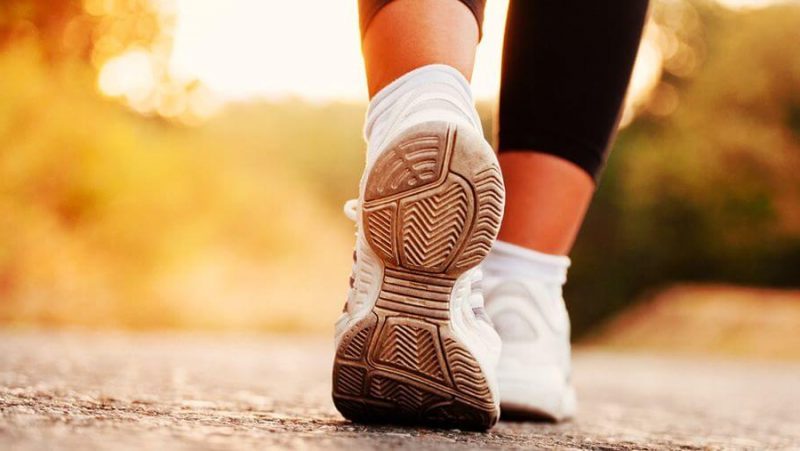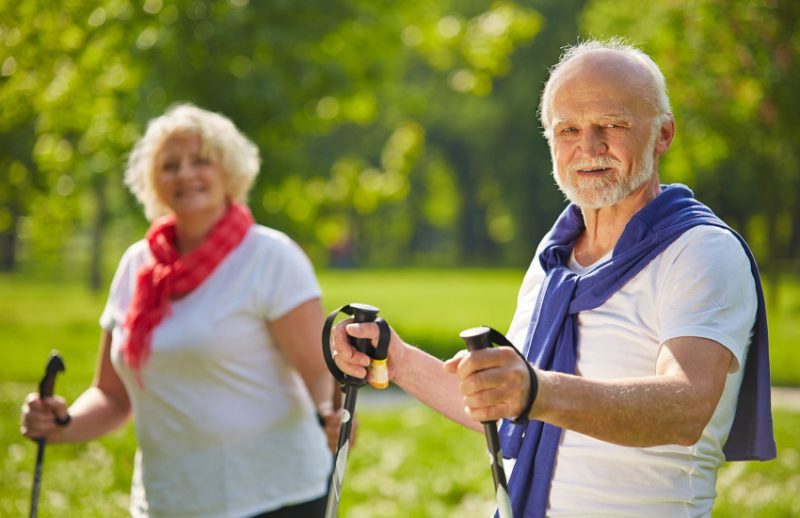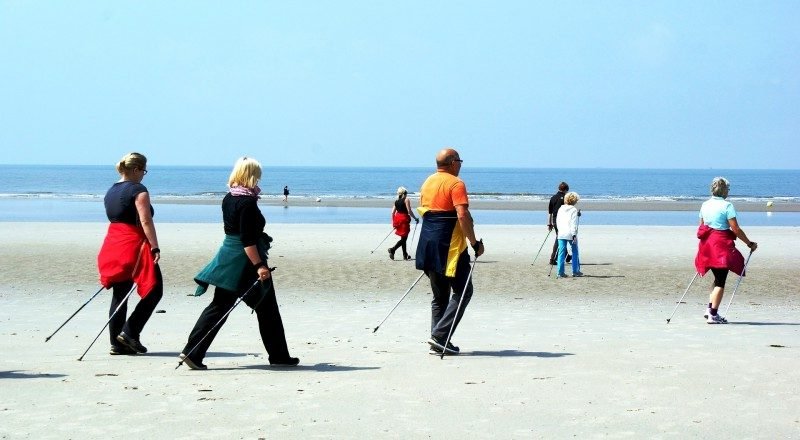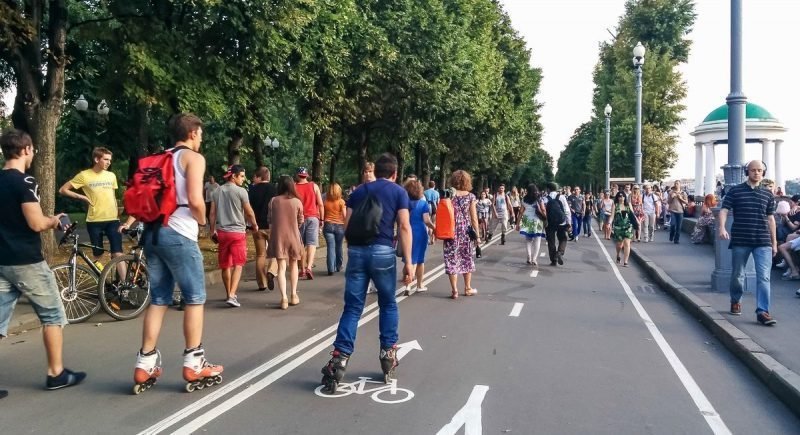
Contents
A mile is a target measurement of distance. A mile can also be explained as a distance of nearly 1.62 kilometers or 5180 feet. A mile is a mile that regardless of how many occasions does it takes to walk. Your inquiry is increasingly about how long time does it take to complete is a particular distance? The answer is based on your speed and on the walking pace. When walking a distance like this you will automatically be healthier than you were. An average individual will walk nearly, 2.6 to 3.3 miles every hour. The range of walking a mile, time would be 19 to 20 minutes at a moderate pace. While considering a mile it is actually a small distance that you are walking daily.
How long does it take to walk a mile definitely?

The walking time is basically relying upon the walker’s speed, walk of the progression and their age limit. The average time that takes to walk a mile for a healthy weight woman without any physical issue or conditions is between 15 – 25 minutes. This is for the most part contingent upon their age limit. Normally, it will take nearly 15 – 20 minutes for 20 – 28 years elderly people ladies, and ladies above 40 to 49 age will take approximately 15 – 25 minutes. For healthy and resilient men, it will take limitedly of 14 to 18 minutes to finish a mile and to old men, it takes nearly 18 to 20 minutes to finish this particular distance. The accompanying diagram will be giving progressively accurate details while considering the average timespan to walk this distance.
| Age | Meters/second | Miles/hour |
|---|---|---|
| 20 to 29 | 1.34 to 1.36 | 3.0 to 3.04 |
| 30 to 39 | 1.34 to 1.43 | 3.0 to 3.2 |
| 40 to 49 | 1.39 to 1.43 | 3.11 to 3.2 |
| 50 to 59 | 1.31 to 1.43 | 2.93 to 3.2 |
| 60 to 69 | 1.24 to 1.34 | 2.77 to 3.0 |
| 70 to 79 | 1.13 to 1.26 | 2.53 to 2.82 |
| 80 to 89 | .94 to .97 | 2.10 to 2.17 |
For a fast walker, it will be easier to finish a mile within 7 to 10 minutes. At the point when you are training or practicing daily to walk this distance, it will make you faster than you are anticipating from yourself than usual. By adding an extra-long distance with a limit to your daily distance, it will make you considerably faster. In short, the more you train, the faster you get.
How long does it take for an average individual to walk a mile?

For an average individual to walk this particular distance, it will take approximately 20 minutes to finish effectively. Walking speed is gradually decreasing when your age limit increases. This will create a distinction in 1.2 to 1.4 minutes delayed for each kilometer than the earlier age that you walked this distance. This will happen at the age of above 57 to 60 than you walk at the age of 20. The average individual will walk 2.7 to 3.0 – miles every hour.
There is a reliance on anything and the main reason for the distinctions in the walking is the pattern followed in doing this activity and the vitality spent. The eating pattern of the athletic is also worried in the reliance for the varying of time according to the utilization of protein and different supplements.
How long does it take to walk half a mile?
To walk a half a mile, it will definitely take at least 15 minutes to finish. On the off chance that the walker is an individual who had an ongoing medical procedure in the leg and the heart who can’t walk a lot faster or energetically, they will take nearly 23 to 25 minutes to finish this area. For a fast walker, it will be 10 to 15 minutes and also, to walk this particular distance, it relies upon the walker’s speed and the walk of the progression that the walker keeps and also this will be based on their genders and on their age limit.
On average, men walk faster than ladies. This distinction is because many older individuals don’t get great advice or a suggested amount of daily physical activities. In the event that an individual walks this particular distance too fast, they can accelerate their speed than they anticipate from them to walk a total mile.

Advantages gain from walking:
- Increased of cardiovascular and heart and lung fitness
- Reduce the risk of heart diseases (heart attack, stroke, hypertension, and thrombosis)
- Increase fitness in the stamina
- Burns calories on your body
- Reduce your body fat
- Increased your muscle strength and endurance
- Reduces bad cholesterol
- Tones your body
- Helps to Rejuvenates you
- Increase longevity
- Prevent miscarriages
- Prevent the risk of lower diabetes
How long does it take to walk a mile on average?
The average walking pace of an individual is nearly 3 to 4 miles for every hour. To walk a mile on average, it may take nearly 15 to 18 minutes. Walking average means you are walking neither too fast nor too much moderate. Straightforward idea is, walking moderately or normally. To a normal walker, it takes at least 15 minutes to wind up this particular distance. On average walking, it relies upon the speed, age limit, sex, weight and the stature of the walker. The speed is based on your healthy fitness level, the kind of terrain, and also how much exertion you are spending on.
It is self-evident, in the event that the walker is a too old and not healthy condition, at that point time will change and speed will decrease. For a healthy woman or a man, it will take nearly 15 minutes to walk this distance through walking neither too moderate nor too fast.
Average walking speed by sex
On average, men walk faster than ladies, with the velocities between the genders being most similar when individuals are in their 20s. The two people have a walking speed that stays fairly steady until reaching their 60s, which is the point at which it starts to decay considerably.
This distinction could be because many more established adults don’t get the suggested amount of week after week physical activity. In general, ladies are more outlandish than men to get the prescribed amount of week by week physical activity.
This table shows the distinction in walking speed by sex and age:
| Age | Sex | Meters/second | Miles/hour |
|---|---|---|---|
| 20 to 29 | Male | 1.36 | 3.04 |
| Female | 1.34 | 3.0 | |
| 30 to 39 | Male | 1.43 | 3.2 |
| Female | 1.34 | 3.0 | |
| 40 to 49 | Male | 1.43 | 3.2 |
| Female | 1.39 | 3.11 | |
| 50 to 59 | Male | 1.43 | 3.2 |
| Female | 1.31 | 2.93 | |
| 60 to 69 | Male | 1.34 | 3.0 |
| Female | 1.24 | 2.77 | |
| 70 to 79 | Male | 1.26 | 2.82 |
| Female | 1.13 | 2.53 | |
| 80 to 89 | Male | 0.97 | 2.17 |
| Female | 0.94 | 2.10 |
Walking is a great activity that many individuals engage and also this carries happiness to individuals and makes them healthier, as well as walking is a fantastic way to improve or to maintain your overall health fitness. Walking is also known as ambulation; this is typically slower than running and different paces. This is also a lively pace that means you should walk faster than you hope to walk normally. Your speed is relying upon your fitness level as well as the sort of terrain. This activity will assist you in improving your overall state of body fitness. Walking or energetic walking keeps your heart, lungs and the circulatory framework progressively active on all occasions and also lessen abundance muscle versus fat and lift muscle force and endurance. Coincidentally; you may keen on thinking about how long does it take to walk a mile.
Safety tips to follow before walking

Walking is generally a safe guaranteed practice that has been perceived by many specialists’ doctors, yet on the off chance that in case an unforeseen hazard happens, a couple of health-related walking tips are offered beneath to tackle the emergency
- Take advice from your doctor before you engage in physical activities or registration from your doctor in the event that you are experiencing a disease like a heart attack.
- Take a legitimate warm up to your body in the event that you have not to practice in a long time and it is necessary to chill off your body.
- Pick a suitable landscape without slopes or inclines that suit your age level and for your fitness level especially above 49 individuals.
- Drink a lot of water before you start your walk and after you end up your walk as well. In the event that you are walking a long distance, it is smarter to take a water bottle with you. It will assist you with overcoming your pressure and thirst.
- Wear comfortable garments and appropriate footwear to forestall rankles and shin supports.
